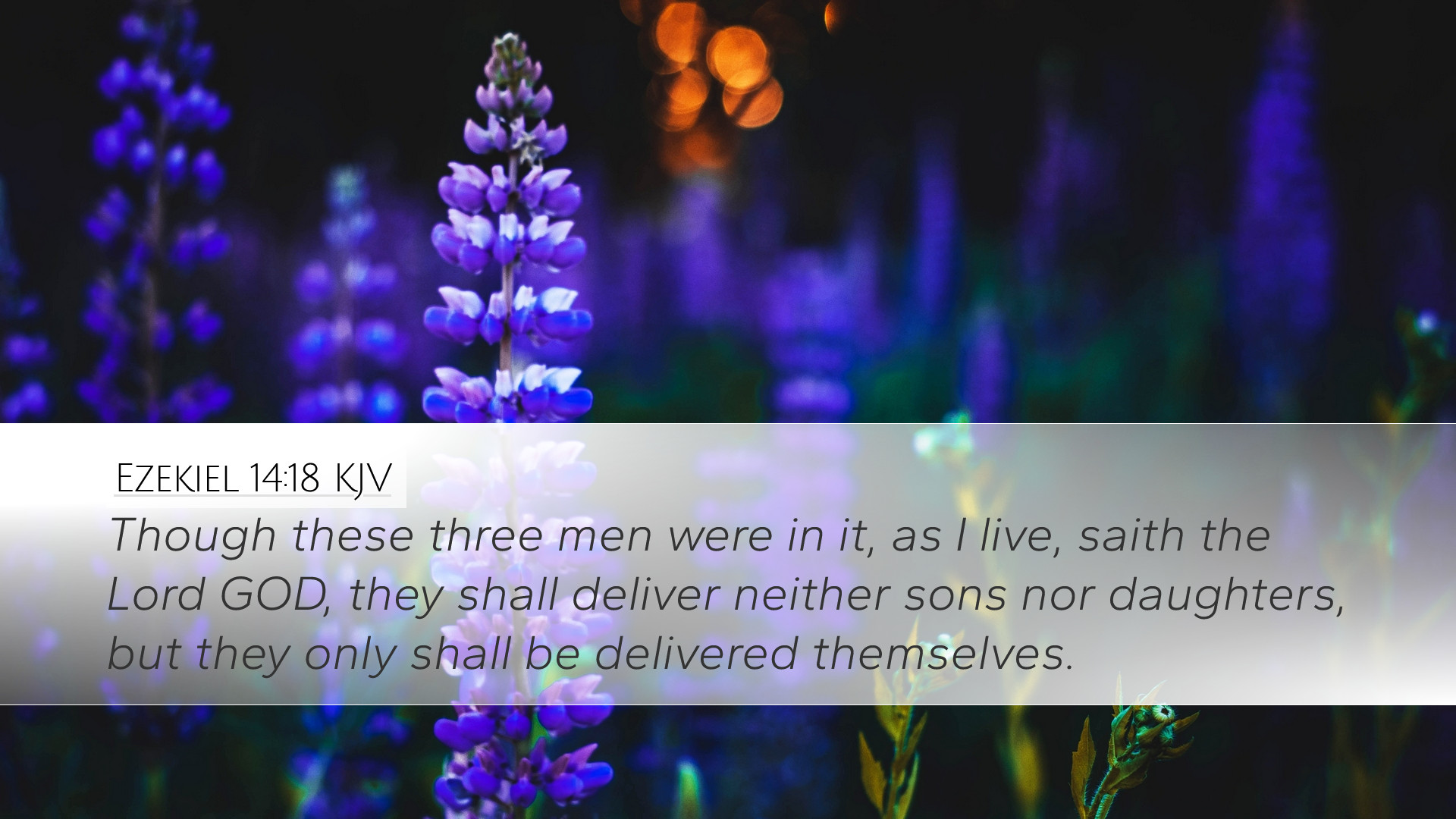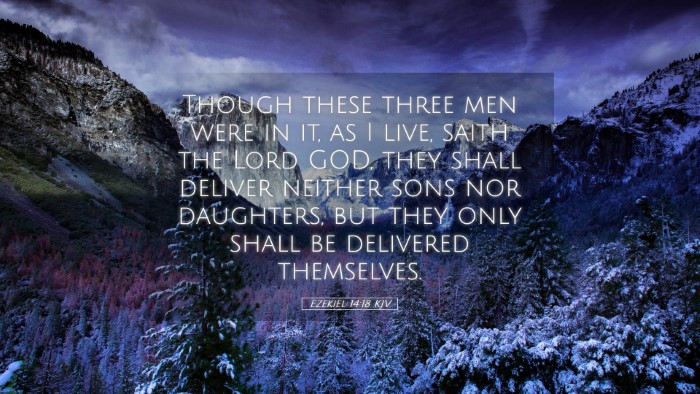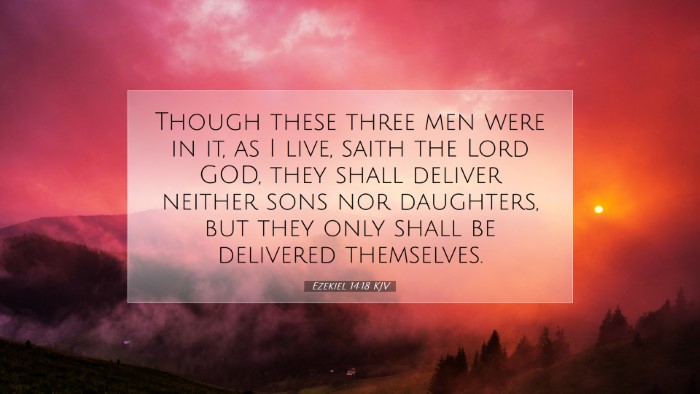Ezekiel 14:18 - Commentary
Bible Verse: "Though these three men, Noah, Daniel, and Job, were in it, they should deliver but their own souls by their righteousness, saith the Lord GOD." (Ezekiel 14:18)
Introduction
This passage from the Book of Ezekiel speaks to the profound theme of individual responsibility before God, especially in the context of divine judgment. The verse presents God’s declaration that even the most righteous men—Noah, Daniel, and Job—could not intercede for others but would only save themselves through their righteousness. This commentary incorporates insights from prominent public domain scholars, including Matthew Henry, Albert Barnes, and Adam Clarke.
Contextual Background
The Book of Ezekiel addresses the exiled Jewish community in Babylon. Ezekiel, a prophet and priest, communicates God’s messages concerning judgment, mercy, and restoration. Chapter 14 specifically focuses on the judgment upon Jerusalem due to the people’s persistent idolatry and rejection of God’s statutes.
The Role of Righteousness
Matthew Henry emphasizes the gravity of personal righteousness, stating that righteousness involves not only moral integrity but also faithful adherence to God’s commands. In times of national calamity, the individual’s righteousness is highlighted, underscoring personal accountability.
Examples of the Righteous
- Noah: His faith amid a corrupt generation saved him and his family from the flood (Genesis 6-9). Henry interprets Noah’s inclusion as a reminder that divine judgment may disrupt many, yet personal righteousness stands firm in God’s grace.
- Daniel: Known for his integrity and faithfulness in Babylon (Daniel 1-6), Daniel illustrates how standing firm in one’s faith in a secular society can lead to deliverance and favor with God.
- Job: Job’s suffering and subsequent vindication serve as a testimony to enduring faith amidst trials. His righteousness and integrity led to his eventual restoration, as Clarke notes, demonstrating that God’s providence is not always immediate but assured.
The Nature of Intercession
Albert Barnes provides insight into the nature of intercession; he argues that while these righteous men had relationship with God, their righteousness could not suffice to save others who were unrepentant. This reinforces the doctrine of personal accountability, asserting that one’s standing before God cannot be transferred or shared.
Implication of Individual Salvation
The passage delivers a stark message about the limits of individual intercession. Each person must arrive at their own decision about righteousness and faith. In the words of Clarke, “each individual must bear his own burden regarding righteousness.” There is an implication here for pastoral care and discipleship, where the necessity of personal faith becomes paramount.
Theological Reflections
This verse connects deeply with New Testament theology where individual faith is a cornerstone. It echoes the sentiments in Romans 14:12, where Paul notes, “So then every one of us shall give account of himself to God.” This relational aspect of spirituality emphasizes that personal relationship with God cannot be inherited.
The Call to Righteousness
The overarching theme from this passage calls believers to pursue their own righteousness authentically. It challenges church leaders, students of theology, and scholars alike to reflect on their personal commitment to God. Henry articulates that believers ought to be mindful, especially in times of crisis, that their own righteousness is vital for personal deliverance.
Conclusion
Ezekiel 14:18 serves as a poignant reminder of the necessity for personal righteousness and accountability. As we navigate the complexities of faith, this verse stands as an exhortation for believers to cultivate their own relationship with God, emulate the faithful examples of Noah, Daniel, and Job, and understand that while community is vital, personal faith remains the foundation of divine salvation.


